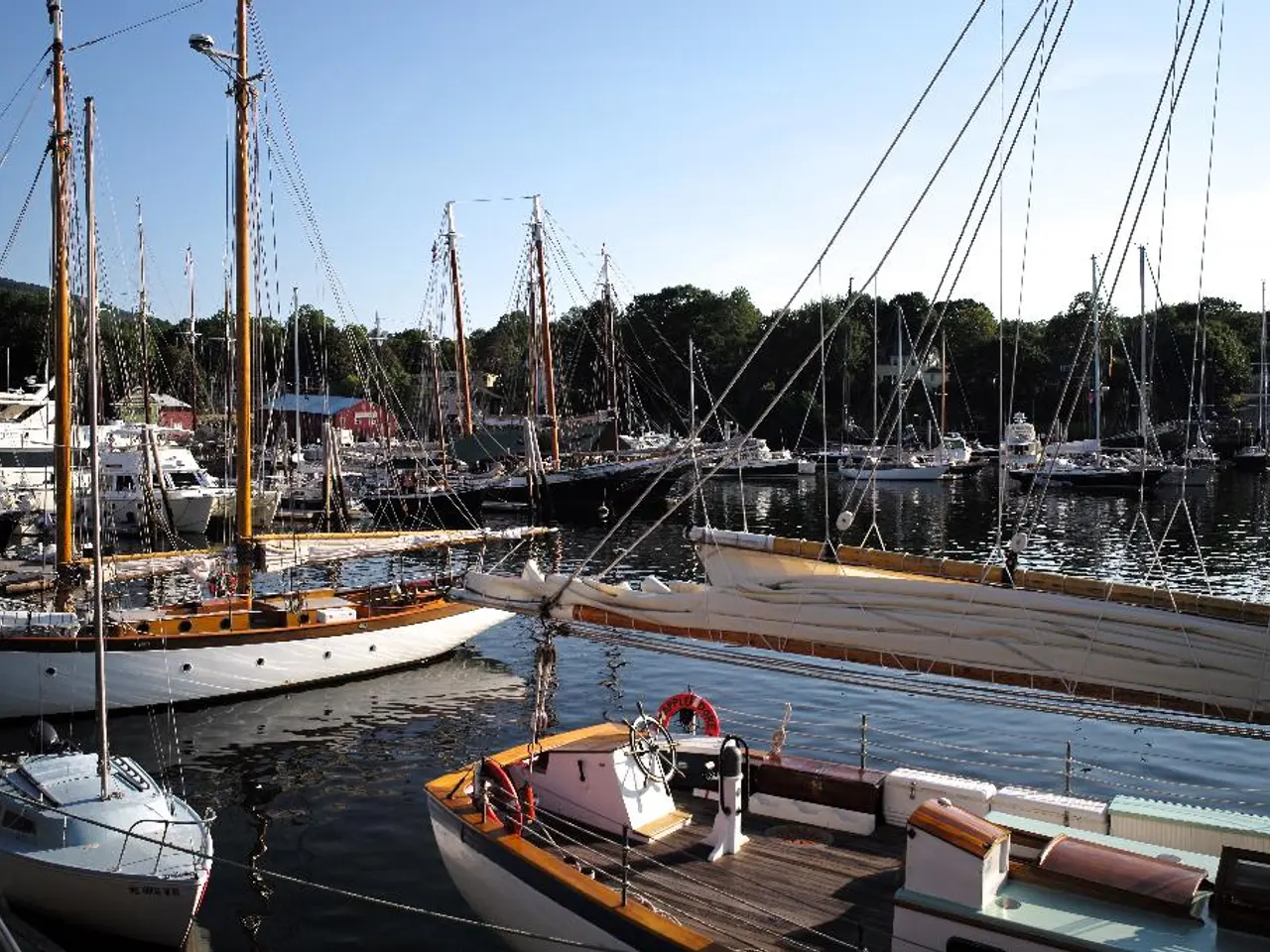Apeco head notes potential benefits from Philippine-EU trade arrangement
The Philippines and the European Union (EU) are currently engaged in ongoing negotiations for a free trade agreement (FTA), with the potential to significantly benefit the Aurora Pacific Economic Zone and Freeport Authority (APECO).
The third round of FTA negotiations took place in Brussels, Belgium in June, and the discussions have gained momentum since then. Gil Taway IV, APECO's president and CEO, expressed optimism about attracting European investors due to APECO's strategic location and development-ready sites for investments.
APECO anticipates significant foreign investment, particularly from Spain and Portugal, for infrastructure projects such as the Casiguran Seaport and the APECO Airport. This investment can enhance the zone's capabilities and attractiveness to European businesses.
The PH-EU FTA is expected to strengthen APECO's position as a strategic transshipment hub for European businesses expanding into the ASEAN region. The zone's potential as a transshipment hub for European goods entering the ASEAN market and vice versa has been highlighted.
Infrastructure development is a key focus for APECO. The zone has acquired additional land to transform its existing airstrip into a fully operational commercial airport, which will benefit from increased trade and investment opportunities facilitated by the FTA. The proposed Casiguran Seaport is envisioned to be a vital gateway for trade and commerce, benefiting industries like agro-industry, renewable energy, defense, and tourism.
The PH-EU FTA also presents opportunities for inclusive development. APECO is working to address past criticisms by engaging with Indigenous Peoples (IP) communities, facilitating dialogue, and promoting trust. This approach aims to ensure that the anticipated increase in economic activity promotes sustainable development and benefits all communities within the zone.
The EU's involvement in the Philippines' economy is significant, both in terms of trade and foreign direct investments. The EU is currently the fourth-largest trading partner of the Philippines, and a major source of foreign direct investments. The EU's concerns on humanitarian issues in the past have temporarily stalled negotiations, but these issues have not been mentioned in recent discussions.
Taway made these statements following a meeting with Spanish Ambassador Miguel Utray Delgado and La Camara Executive Director Ascension Lillo-Martin. Earlier meetings were held in October 2021 and February 2025. The meeting took place during the 23rd Philippine-Spanish Friendship Day celebration in Baler, Aurora, on July 7, 2025. Taway and the Spanish officials also discussed an APECO investment promotion mission to Spain and Portugal scheduled for November.
The negotiations are ongoing, and the potential benefits for APECO under the PH-EU FTA are multifaceted: increased foreign investment, strategic positioning, infrastructure development, and community and governance benefits. The PH-EU FTA presents APECO with opportunities to enhance its infrastructure, attract foreign investment, and foster sustainable economic growth while promoting community engagement.
- The optimistic mood of APECO's president and CEO, Gil Taway IV, suggests that the ongoing Philippines-European Union (EU) free trade agreement (FTA) negotiations could attract European investors, particularly from Spain and Portugal, due to APECO's strategic location and development-ready sites for investments.
- The anticipated foreign investment, as a result of the PH-EU FTA, can help fund infrastructure projects within APECO, such as the Casiguran Seaport and the APECO Airport, enhancing the zone's capabilities and attractiveness to European businesses.
- The Philippine government's engagement with the EU in trade negotiations goes beyond just business and industry; it also presents opportunities for inclusive development, as APECO collaborates with Indigenous Peoples (IP) communities to ensure that the anticipated increase in economic activity promotes sustainable development and benefits all communities within the zone.




